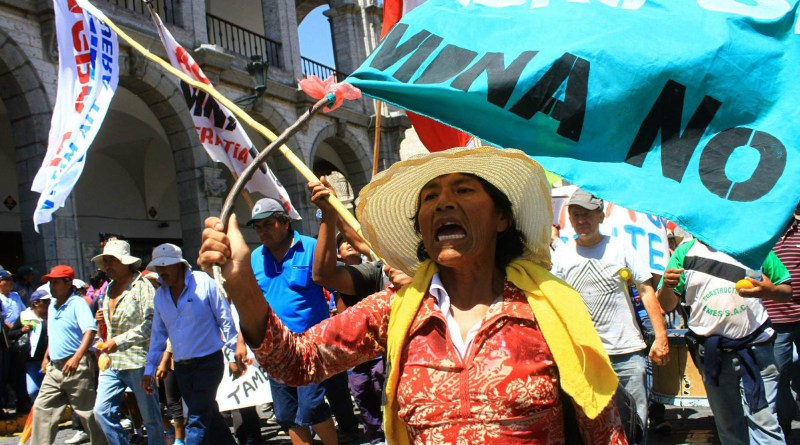Political Report # 1426
'They burned everything': Guatemalan women press Hudbay on human rights claims in closely watched case
|
Their lawsuit, originally filed in 2011, ties into a trend
of increasing scrutiny of Canadian mining and exploration companies’ overseas
activity
Two indigenous Guatemalan women stood quietly in front of a
Toronto courthouse on Tuesday morning, surrounded by a scrum that included a
filmmaking crew, lawyers, media and a gaggle of other people.
On a crowded city street during rush hour, the women drew
little notice from passersby but their case is being closely followed by the
mining sector and beyond.
Both women, Irma Yolanda Choc Cac and Angelica Choc, had
travelled from a remote part of eastern Guatemala, to continue pressing legal
claims that Hudbay Minerals Inc., one of Canada’s oldest mining companies,
bears liability for rape, violence and other human rights abuses that took
place more than a decade ago when their village was razed to make way for the
Fenix nickel mine.
Their lawsuit, originally filed in 2011, ties into a trend
of increasing scrutiny of Canadian mining and exploration companies’ overseas
activity. In its wake, other plaintiffs sued at least two other mining
companies under the same novel legal theory, which accuses the mining companies
of negligence.
“I’m assuming any chance of resolving anything between these
parties has long since left the building,” the presiding case management
master, Michael McGraw, who functions like a judge, said near the start of the
hearing on Tuesday.
In a courtroom packed with journalists and supporters of the
women, the lawyers had planned to argue about whether the plaintiffs could
amend their complaint against Hudbay to include new details about the alleged
human rights abuses.
But that never happened and instead, the parties pushed the
hearing back until November while they discuss a compromise.
The suit claims security personnel for Skye Resources —
which Hudbay bought in 2008 for US$451 million to acquire the Fenix mine
project — worked with Guatemalan military and police to clear the land and raze
the Mayan Q’echi community of Lote Ocho for the mining project.
Several of the plaintiffs in the case, including one present
Monday, in documents filed in the case, describe the trauma — being tied,
beaten and gang-raped in front of their children — in excruciating detail while
under examination by Hudbay’s lawyers at Fasken, Tracy Pratt and Robert
Harrison.
“It was these men just like this that raped me when I was
three months’ pregnant,” one of the plaintiffs said, adding, “And it’s men just
like this that are the ones that burned my house, and they burned my clothing
and they burned everything I had in my house.”
The other plaintiff claims the head of mining security
killed her husband for protesting against the mining company.
The plaintiffs’ lawyers say they have gained new details
from documents and emails that Hudbay produced during the litigation to
substantiate the alleged human rights abuses. Already, they have filed
documents in court that contain new details related to payments Skye made to
military and police, and to the arrangements between Skye’s security force and
local police and military.
At the hearing, lawyers for Hudbay said they would consider
agreeing to allow the plaintiffs amended complaint, although they may file a
new motion challenging whether Ontario is the proper jurisdiction to hear the
claims. They had filed a motion to move the case to Guatemala earlier in the
case, but Hudbay withdraw it before a ruling was ever handed down.
Meanwhile, in a separate case using the same legal theory
filed against Tahoe Resources, a B.C. judge ruled that the negligence case
could be heard in Canada. Earlier this year, Pan American Resources Inc., which
purchased Tahoe, publicly apologized to the plaintiffs and reached a
confidential settlement.
There remains one other suit that uses the same theory,
against Nevsun Resources Inc., which was purchased by a Chinese company in
2018, accusing it of using forced labour and of committing other human rights
abuses on a mining project in Eritrea.
A representative for Hudbay, who was present in the
courtroom, referred questions to the company’s lawyers, who declined to
comment.
Hudbay sold its interest in the Fenix mine for US$170
million in 2011, shortly after the lawsuit was filed. It retained liability,
however, and continues to fight the case.
Original article can be found (here). URL: Click here for article |

